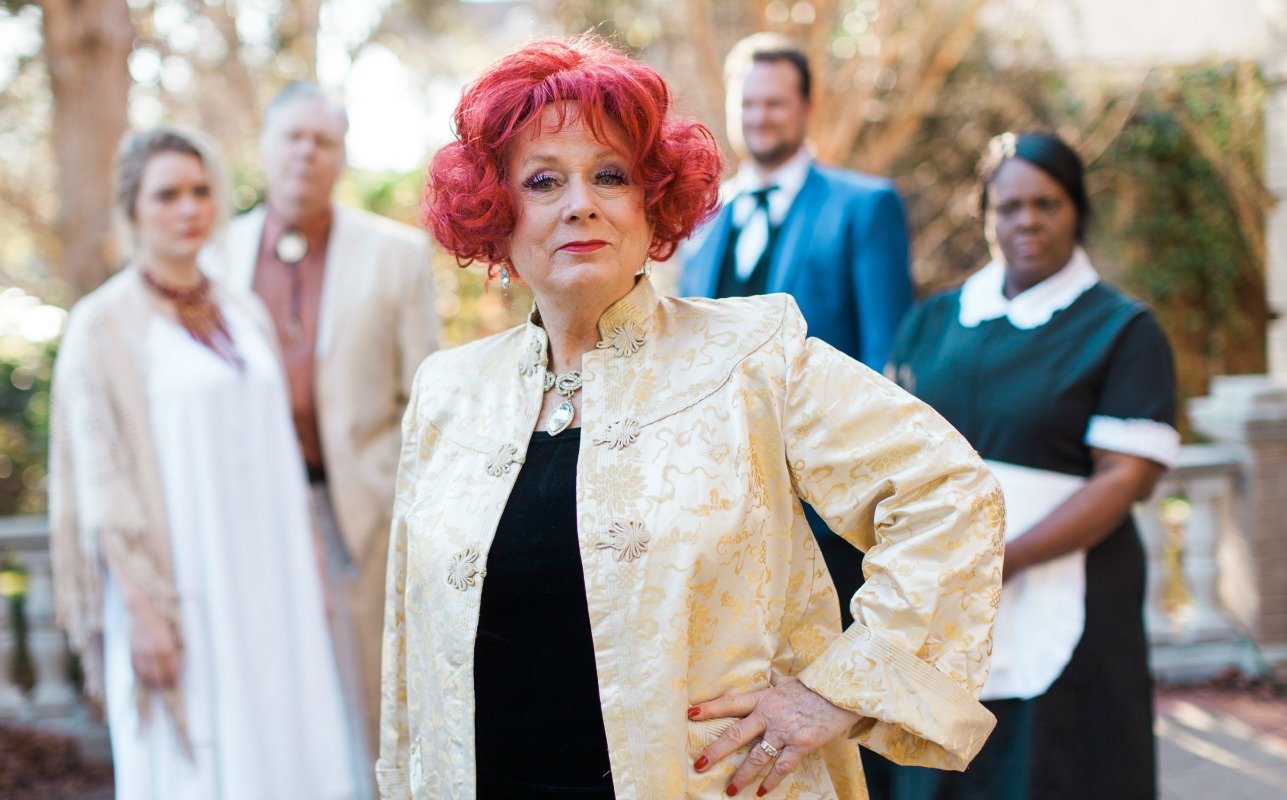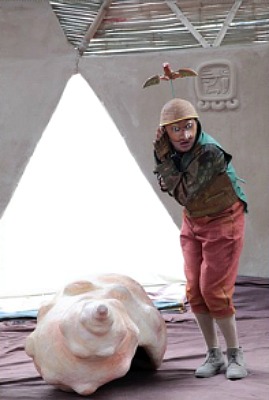Review: Theatre Three’s ‘Oil’ Gets Doused With Vinegar
ArtandSeek.net January 29, 2016 23
in Theatre 3’s ‘Oil’: Gene Raye Price, front. Back: Jenna Anderson, John Davis, Gregory Hullet and Patricia E. Hill. Photo: Stephanie Drenka. Images up top and out front: Shutterstock.
Theatre Three has opened a world-premiere play about a wealthy Texas family coming apart during the oil recession of the late 1980s. The play, called ‘Oil,’ has a feisty, strong-willed matriarch eager to defy OPEC and save her company, a gay nephew and a daughter pushing solar energy as the real answer. KERA’s Justin Martin and Jerome Weeks sat down to drill through ‘Oil.’
Justin: I understand ‘Oil,’ the new play at Theatre Three, is set in Houston in 1987. I’m assuming that, like now, oil prices were probably fluctuating.
Here’s how ‘Oil’ opens. The family matriarch – played by Gene Raye Price – has just woken up in bed looking for her morning shot of whiskey. And she immediately starts talking about drilling again. Her husband, played by John Davies, cuts her off.
Sycamore: We’re not gonna talk about this. Not today, not any day. You’re not drilling for oil. No domestic production until the price goes up, and that’s final.
Magritte: You’re not talking to the Petroleum Club. You’re talking to your wife. Without oil, our own oil, we’re nothing–
Sycamore: You’re starting up again, and don’t think we can’t tell —
Magritte: I’m not gonna sit by while a few ayatollahs decide whether we live or retire! No one understands. I got to do it my way, or I’m really dead.
And that sets up the whole play. The writer, the late Neil Tucker, worked in energy – in addition to writing plays. Trouble is, there’s no insight here into the oil industry or into “colorful Texas characters” — nothing you couldn’t pick up from a couple of episodes of the original ‘Dallas’ on TV.
Basically, despite all the family’s troubles, ‘Oil’ is Texas camp.
Justin: What do you mean by ‘Texas camp’?
And, of course, these characters all spout folksy, comic metaphors like “We go out for dinner one night – and you throw up in the backseat like some floozy on a Galveston rollercoaster.”
Justin: Correct me if I’m wrong, but didn’t Dan Rather say stuff like that?
‘Oil’ is a comedy and a big ol’ family melodrama. It wants to say something about Texas and Texas politics, the state’s defiant independence and its utter dependence on oil. It wants to create a larger-than-life figure in the mom and get off some decent, well-deserved zingers at the Bush family. All this, but the play’s current status is a bit sad, really. ‘Oil,’ the play, has been given readings by Echo Theatre and the Dallas Theater Center – with some big-name talent attached like Tyne Daly. Yet it’s still too long, too talky, not funny enough, not focused enough.
A small point, admittedly, but the play even gets some of its period references wrong. In 1987, people didn’t say “mini-me” — a term from the Austin Powers films, the first of which came out ten years later. Nor did they speak of “blood diamonds,” a term commonly used in the West only after a round of brutal civil wars in Angola, the Congo and Sierra Leone, all of which happened in the 1990s.
The best things about Theatre Three’s show are Bruce Coleman’s handsomely cheesy set and Gene Raye Price getting a healthy workout. She’s in nearly every scene, and it’s good to see her at her age, running and raising up a storm, having fun — even if her character is a noisy, blowsy caricature.

From ‘Caracol y Colibri.’
Justin: Well, bust ma britches, Jerome, what else is coming up that’s worth a look?
And not just Mexico, although Mexico is the focus this year. So we get a smidgen of cultural sophistication hereabouts.
Thanks, Jerome.










